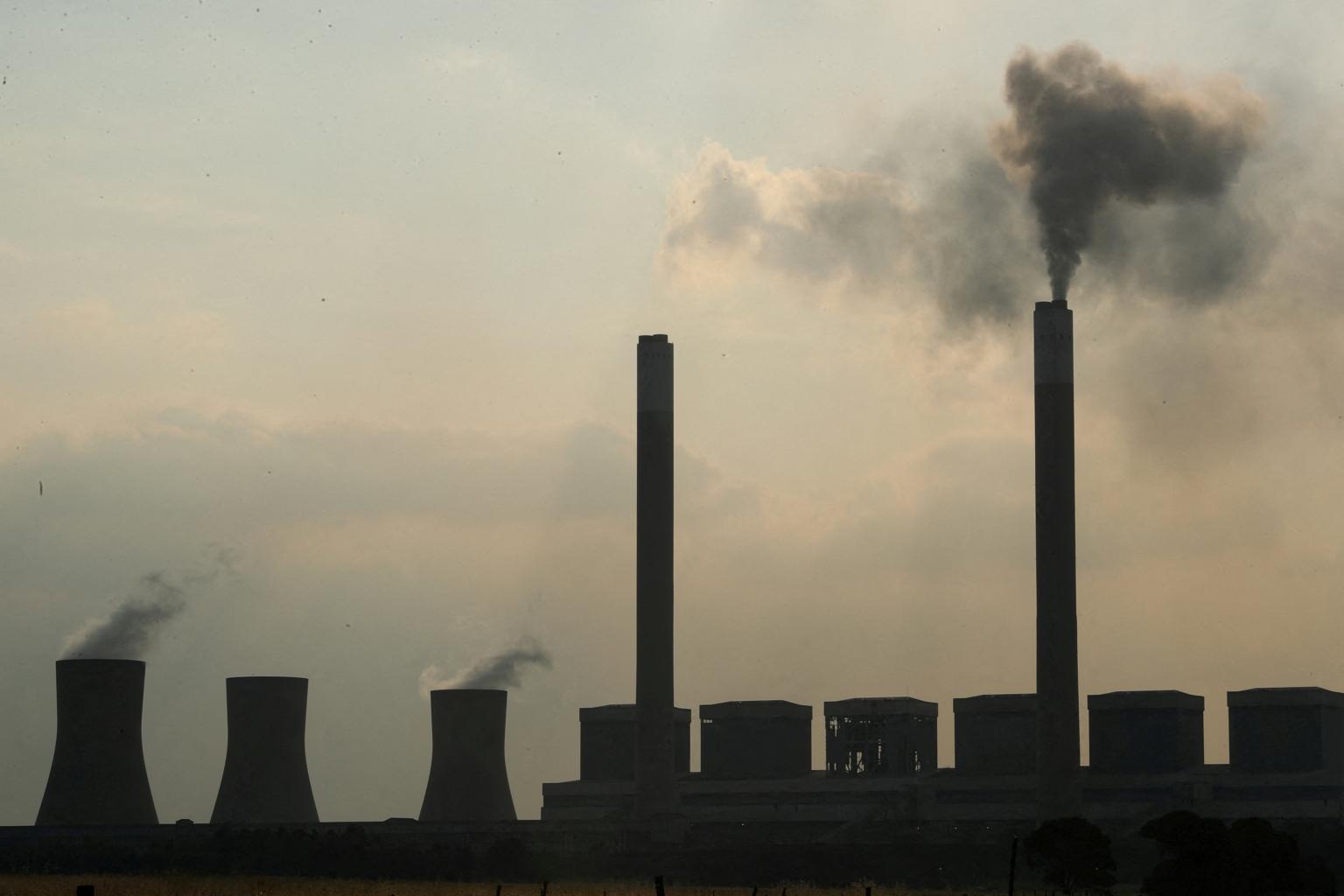G-7 pledges to phase out coal power but without fixing date
Sign up now: Get ST's newsletters delivered to your inbox

The pledge marked the first commitment from the G-7 countries to quit coal-fuelled power.
PHOTO: REUTERS
BERLIN (REUTERS) - Ministers from the world's richest democracies agreed on Friday (May 27) to work to phase out coal-powered energy, although they failed to set a date for doing so, and said the energy crunch brought on by Russia-Ukraine war should not derail efforts to fight climate change.
The commitment, published at the end of three days of Group of Seven (G-7) talks in Berlin, was weaker than a previous draft of the final communique seen by Reuters, which had included a target to end unabated coal power generation by 2030.
Sources familiar with the discussions said Japan and the United States had both indicated they could not support that date.
But the pledge still marked the first commitment from the G-7 countries to quit coal-fuelled power.
Coal is the most carbon dioxide-emitting fossil fuel and use of it needs to plummet if the world is to avoid the worst impacts of climate change.
The group met against the backdrop of spiralling energy costs and fuel supply worries due to the war in Ukraine.
The conflict has triggered a scramble among some countries to buy more non-Russian fossil fuels and burn coal to cut their reliance on Russian supplies.
"Replacing fossil fuels from Russia has dominated the political debate and the actions of the government in the past weeks and months," German economy minister Robert Habeck said at a news conference.
"But it must be clear to us that the challenges of our political generation, limiting global warming, won't go away if we just concentrate on the present," he said. "Time is literally running out."
The G-7 also agreed to largely decarbonise their power sectors by 2035, and to stop public financing for "unabated" fossil fuel projects abroad by the end of this year, except in limited circumstances.
"Unabated" refers to power plants that do not use technology to capture their emissions.
The communique made a commitment to a highly decarbonised road sector by 2030, including significantly increasing the sale, share and uptake of zero emission light duty vehicles.
The G-7 also aimed to start reporting publicly next year on how the countries are delivering on a past commitment to end "inefficient" fossil fuel subsidies by 2025.
Significant shift
All G-7 countries except for Japan had made the finance pledge at the COP26 climate summit last year, and campaigners said it would be a significant shift if Japan - one of the world's biggest providers of finance for fossil fuel projects abroad - came on board.
Japan provided US$10.9 billion (S$14.9 billion) for such projects on average per year from 2018 to 2020, with most of that spent on oil and gas, according to analysis by non-profit Oil Change International.
"If Japan implements this commitment with integrity, it will directly shift US$11 billion a year from fossil fuels to clean energy and have a much larger indirect impact given Japan's influence on other financiers in Asia and around the world," said Susanne Wong, Asia programme manager at Oil Change.
By covering all fossil fuels, including oil and gas, the agreement goes further than a pledge made by G-20 countries last year to halt overseas financing for just coal.
The G-7 also pledged to take ambitious action against plastic pollution and to increase national efforts to conserve or protect at least 30 per cent of their own coastal and marine areas by 2030.


